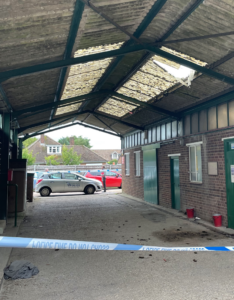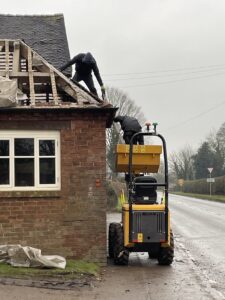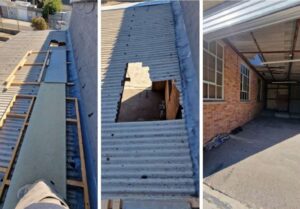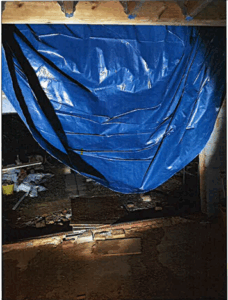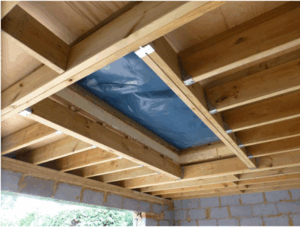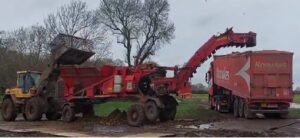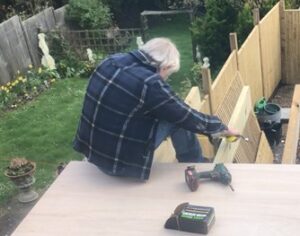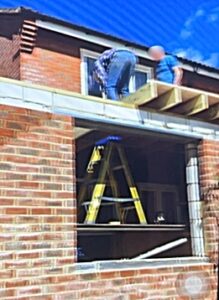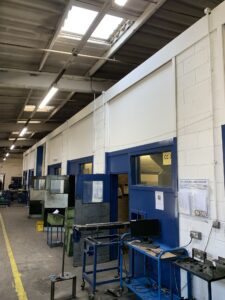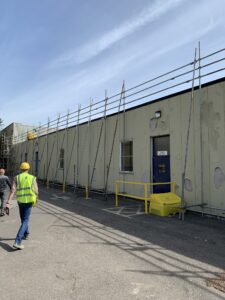Contractor jailed after ‘kind hearted’ teen fell to death during demolition works
- 19-year-old worker died after falling through garage roof
- HSE investigation found there were no measures in place to prevent or mitigate a fall.
- Jason Hill jailed for 12 months as teen’s family warn ignoring health and safety ‘has irreversible consequences’
A self‑employed contractor has been jailed after a teenager fell to his death during demolition works on a property in Surrey.
Jason Hill had hired 19-year-old Thomas Neate, known as Tom, to help demolish a garage at a domestic property in preparation for an extension, at an address on Glebe Road in Staines-upon-Thames.
On 16 August 2023, Tom, who was local to the area, was on the garage roof removing tiles and other materials when he fell through an opening and suffered severe head injuries. He was taken to hospital but he died several weeks later on 23 September.

An investigation by the Health and Safety Executive (HSE) found that Hill, 59, of Ashford in Middlesex, had put no measures in place to prevent a fall from height, despite the clear risk. Work was being carried out directly from the roof with no scaffolding, decking, or other protective systems to prevent a person falling through or from the structure.
Working at height remains one of the leading causes of workplace injury and death. HSE has detailed guidance available on working safely at height and managing construction activities employers should follow to prevent incidents.
In a statement provided to HSE, Tom’s family spoke of their devastation at his untimely death.
“Tom was a kind hearted and hard working young man who was such a huge part of so many people’s lives,” they said.
“His loss has devastated us and knowing it could have been avoided makes that loss even harder to bear. His death should never have happened and while we acknowledge the court’s decision, no sentence can reflect what we have lost.
“We can only hope that this case serves as a warning to others that ignoring health and safety has irreversible consequences.”
During the course of the HSE investigation, other concerns were identified, including unsafe mini-digger use and a failure to stop members of the public entering the site, indicating broader failings in Hill’s approach to managing health and safety.
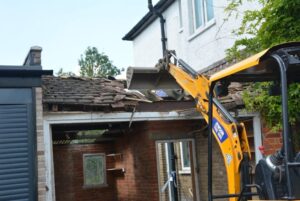
The investigation also found no assessment to determine whether asbestos was present. Corrugated concrete sheets being snapped and removed by hand were later found to be made from asbestos cement – a material commonly found in buildings constructed before 2000. There were three other workers on site who were at risk of exposure to fibres as the sheets were handed down to them, as well as the family whose garage was being worked on.
Before any demolition or refurbishment work begins, dutyholders must assess whether asbestos is present and plan how work will be carried out safely. See Asbestos Essentials Task sheets for step-by-step instructions.
Jason Hill, of Ashford, Middlesex, pleaded guilty to breaching Section 3(2) of the Health and Safety at Work etc. Act 1974 at Staines Magistrates Court on 30 January 2026. He was immediately jailed for a period of 12 months. No costs were awarded.
HSE Inspector Jennifer Lester said: “Jason Hill’s failure to put in place basic safety measures has cost a young man his life.
“The fact he has been sent to prison demonstrates just how seriously this has been taken.
“Working at height remains one of the most well‑known and significant causes of death and injury in construction, and simple, recognised precautions would have protected Thomas Neate from harm.
“Even small contractors and individuals working on domestic projects have a legal duty to ensure the safety of workers and members of the public.
“Failing to take these precautions can have devasting consequences, as this tragic incident starkly demonstrates. Our thoughts are with Tom’s family and friends as they mourn their loss”
This HSE prosecution was brought by enforcement lawyer Julian White and paralegal officer Lynne Thomas.
Further information:
- The Health and Safety Executive (HSE) is Britain’s national regulator for workplace health and safety. We are dedicated to protecting people and places, and helping everyone lead safer and healthier lives.
- More information about the legislation referred to in this case is available.
- Further details on the latest HSE news releases is available.
- HSE does not pass sentences, set guidelines or collect any fines imposed. Relevant sentencing guidelines must be followed unless the court is satisfied that it would be contrary to the interests of justice to do so. The sentencing guidelines for health and safety offences can be found here.
- The HSE campaign “Asbestos and You” reminds tradespeople about the dangers of asbestos and the importance of working safely with it.

